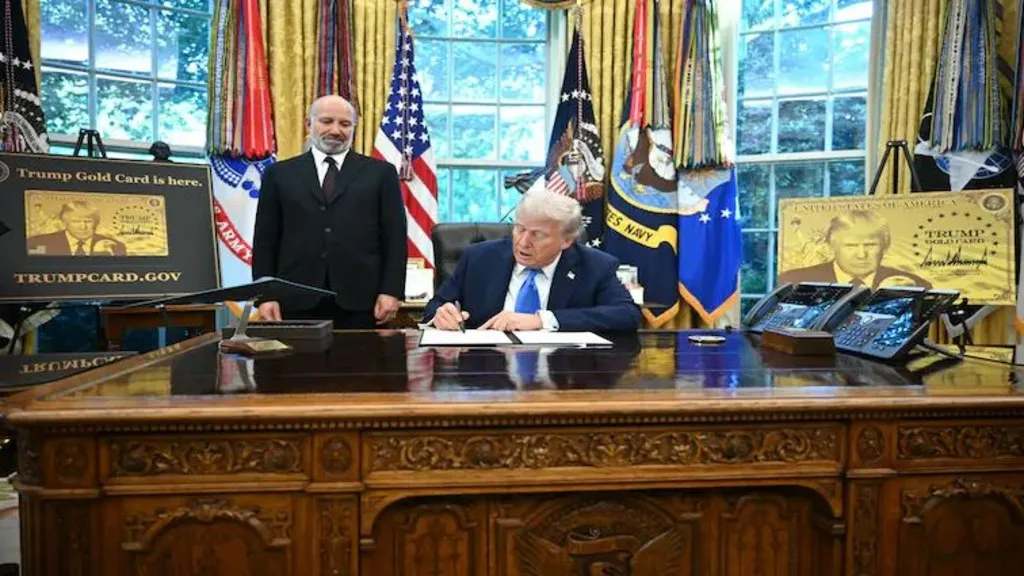

Trump Imposes Shocking $100,000 Annual Fee on H-1B Visas in Radical Overhaul
In one of the most sweeping and consequential reforms to the US immigration system in decades, President Donald Trump has signed a proclamation imposing a staggering $100,000 annual application fee for each H-1B visa. The move represents a radical overhaul of the program for highly skilled foreign workers and is poised to have a devastating impact on Indian tech professionals, who are the primary recipients of the visa, and the major American tech companies that rely on their talent. The administration is framing the move as a necessary step to prioritize American jobs, but critics are already questioning its legality and its potential to cripple a vital pipeline of global talent.
A 'Train Americans First' Policy
The dramatic new policy was announced by US Commerce Secretary Howard Lutnick, who made the administration's rationale explicitly clear. "A hundred thousand dollars a year for H-1B visas, and all of the big companies are on board," Lutnick stated, adding, "If you’re going to train somebody, train one of the recent graduates from one of our great universities. Train Americans. Stop bringing in people to take our jobs." This statement positions the massive fee hike not as a revenue generator, but as a deliberate deterrent designed to force companies to invest in the domestic workforce.
This new annual fee completely transforms the financial calculus of the H-1B program, which was created in 1990. Under the current system, employers pay a modest fee for an applicant to enter the visa lottery, followed by additional charges that can total several thousand dollars if the applicant is selected. A recurring annual fee of $100,000 is an exponential increase that could make hiring foreign talent prohibitively expensive for all but the largest corporations.
A Disproportionate Impact on India and Big Tech
The fallout from this policy will be felt most acutely by Indian nationals and the US tech industry. According to official data, Indian workers account for a massive 71 percent of all approved H-1B visa recipients, making them the group most directly in the line of fire. The program is the primary pathway for Indian tech professionals to work in the US, and this new cost barrier is likely to significantly reduce their opportunities.
The policy also presents a major challenge for America's largest technology companies, which are the biggest users of the H-1B system. In the most recent lottery, Amazon was the top recipient, securing over 10,000 approvals, followed by giants like Tata Consultancy, Microsoft, Apple, and Google. President Trump, who has long criticized the program as a tool for undercutting American wages, has claimed that the tech sector will be "very happy" with the new fee, but the industry has remained silent so far, likely scrambling to assess the massive new financial burden.
Legality Questioned in a Broader Clampdown
The legality of such a drastic fee hike is already being called into question. Aaron Reichlin-Melnick, the policy director at the American Immigration Council, has argued that the new rule may not even be legal, pointing out that "Congress has only authorised the government to set fees to recover the cost of adjudicating an application." This suggests that a legal battle over the administration's authority to impose such a punitive fee is almost certain.
This move does not exist in a vacuum. It is the latest and most aggressive step in a broader Trump administration strategy to restrict legal immigration. Just last month, the US introduced a pilot program to demand bonds of up to $15,000 for tourist and business visas from certain countries. The H-1B overhaul is a clear signal that the administration is willing to use every tool at its disposal to reshape the country's immigration landscape, with profound and immediate consequences for thousands of skilled workers and the industries that depend on them.